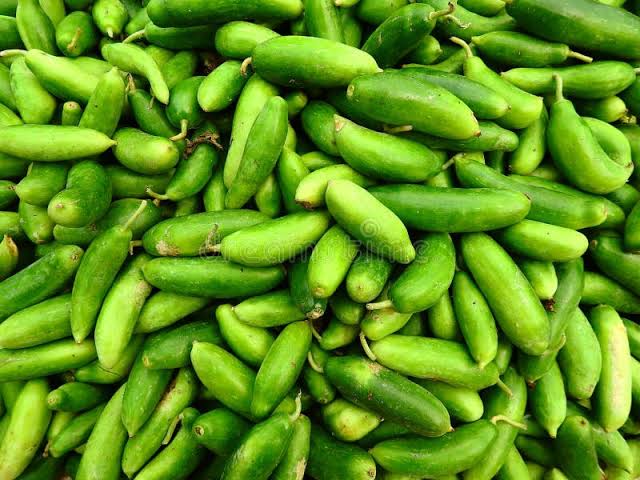Kundru, also known as ivy gourd, is an essential component of Indian cuisine and is known by a variety of regional nameslike tendli, kovakkai, dondakaya, tindora, tonde kayi, toruni, to name a few, across Gujarat, Goa, Tamil Nadu, West Bengal, Bihar, and Karnataka. While the distinct taste of kundru dominates any recipe, different types of tadka and regional components may impart somewhat varied flavors to the nutritionally dense vegetable.
Kundru’s popularity stems not only from its adaptability and delicious flavor, but also from its therapeutic properties, which make it a vital component to any diet. Kundru has been mentioned in ancient manuscripts dating back to 5000-6000 BC and is used to treat a variety of ailments and infections. Many ancient Ayurvedic physicians employed the vegetable in a variety of therapies including Panchakarma therapy. It was also used for the treatment of intestinal worms, skin diseases and diabetes.
Kundru is rich in beta-carotene which is very helpful in keeping the heart healthy and prevent cardiac ailments. A low-calorie vegetable, kundru has high water content, and has a variety of essential nutrients, minerals and vitamins. High in iron, calcium, vitamins B1 and B2, and loads of dietary fibre, kundru takes care of your overall health. Whether you are trying to manage diabetes or attempting to lose weight, eating kundru can work on all aspects of your well-being. Among the many incredible benefits of kundru are improved metabolism, digestion, prevention of kidney stones, protection against allergies, relieving fatigue to name a few.
The juice of the roots and leaves is used in the treatment of diabetes. The leaves are used as a poultice in treating skin eruptions, while the plant is used as a laxative.
“Kundru, also known as ivy gourd or Coccinia grandis, is a humble vegetable commonly found in Indian households. Though it often goes unnoticed in the grander scheme of superfoods, this green, crunchy vegetable packs a powerful nutritional punch,” says By Dr Piyush Mishra, General Physician & Immunisation Officer, North East District, New Delhi.
Amazing benefits of Ivy Gourd or Kundru
Dr Mishra shares seven amazing benefits of incorporating kundru into your diet:
1. Rich in nutrients
Kundru is a nutrient-dense vegetable. It is an excellent source of vitamins A and C, which are crucial for maintaining good vision, boosting immunity, and promoting skin health. Additionally, it provides a good amount of dietary fibre, which is essential for digestive health.
2. Supports weight management
For those looking to manage their weight, kundru is a perfect addition to the diet. It is low in calories yet high in water content and fibre, which helps you feel full longer. This can reduce overall calorie intake and support weight loss or maintenance efforts.
3. Regulates blood sugar levels
Kundru has been traditionally used in Ayurvedic medicine to manage diabetes. It contains bioactive compounds that help in the regulation of blood sugar levels. Including kundru in meals can aid in maintaining stable blood glucose levels, making it beneficial for diabetics and those at risk of diabetes.
4. Boosts heart health
Heart health can greatly benefit from the consumption of kundru. It contains antioxidants like beta-carotene, which help in reducing oxidative stress and inflammation, thus supporting cardiovascular health. Furthermore, its fibre content helps in lowering cholesterol levels, which is beneficial for heart health.
The fibre content in kundru aids in maintaining a healthy digestive system. It helps prevent constipation and promotes regular bowel movements. The high water content also ensures hydration of the digestive tract, facilitating smoother digestion.
6. Strengthens immunity
Kundru is rich in vitamin C, a vital nutrient for strengthening the immune system. Vitamin C enhances the production and function of white blood cells, which are essential for fighting infections. Regular consumption of kundru can contribute to a more robust immune response.
7. Anti-inflammatory properties
Kundru has been noted for its anti-inflammatory properties. It contains various phytonutrients that can help in reducing inflammation in the body. This is particularly beneficial for individuals suffering from inflammatory conditions such as arthritis.
Source:HT







 Finance
Finance







